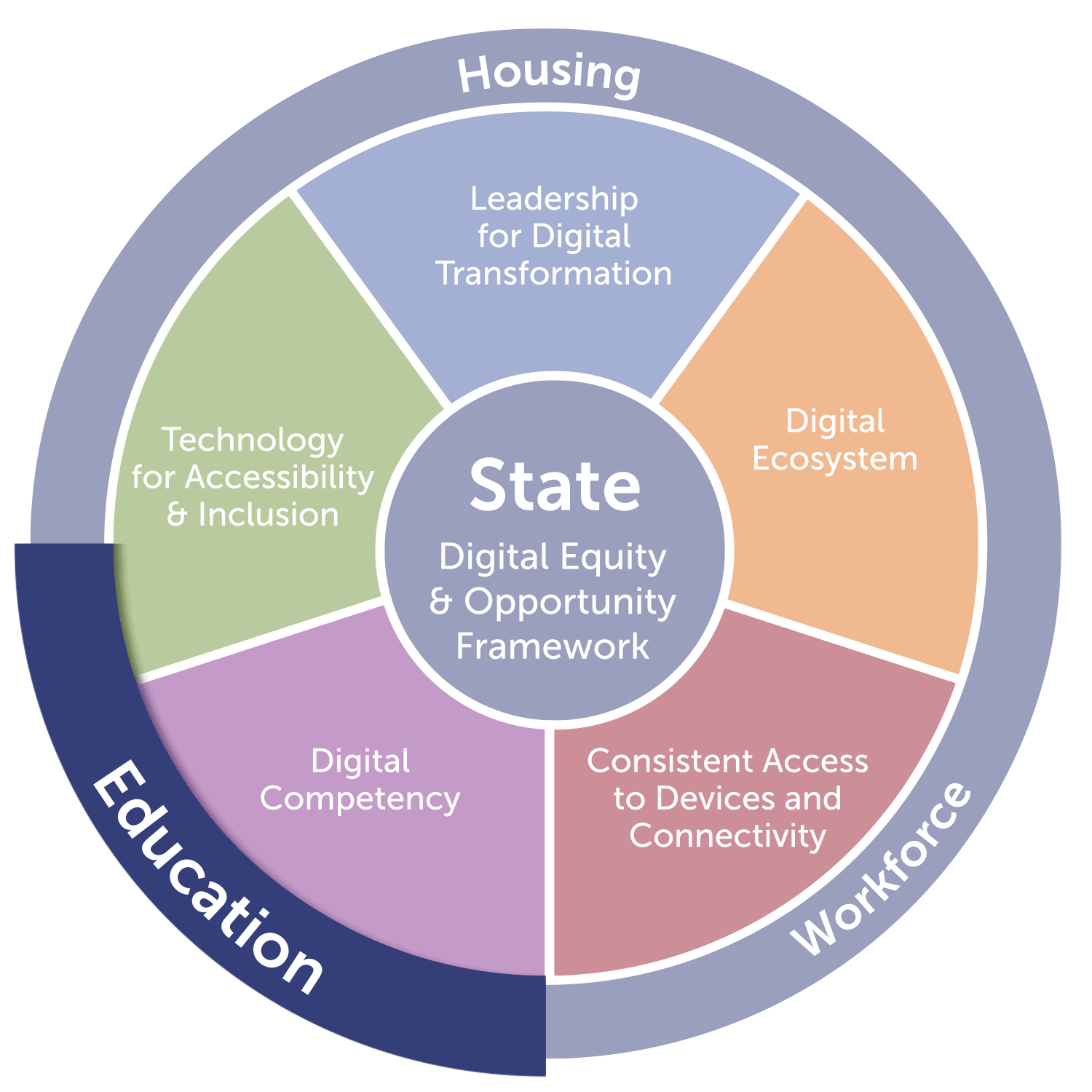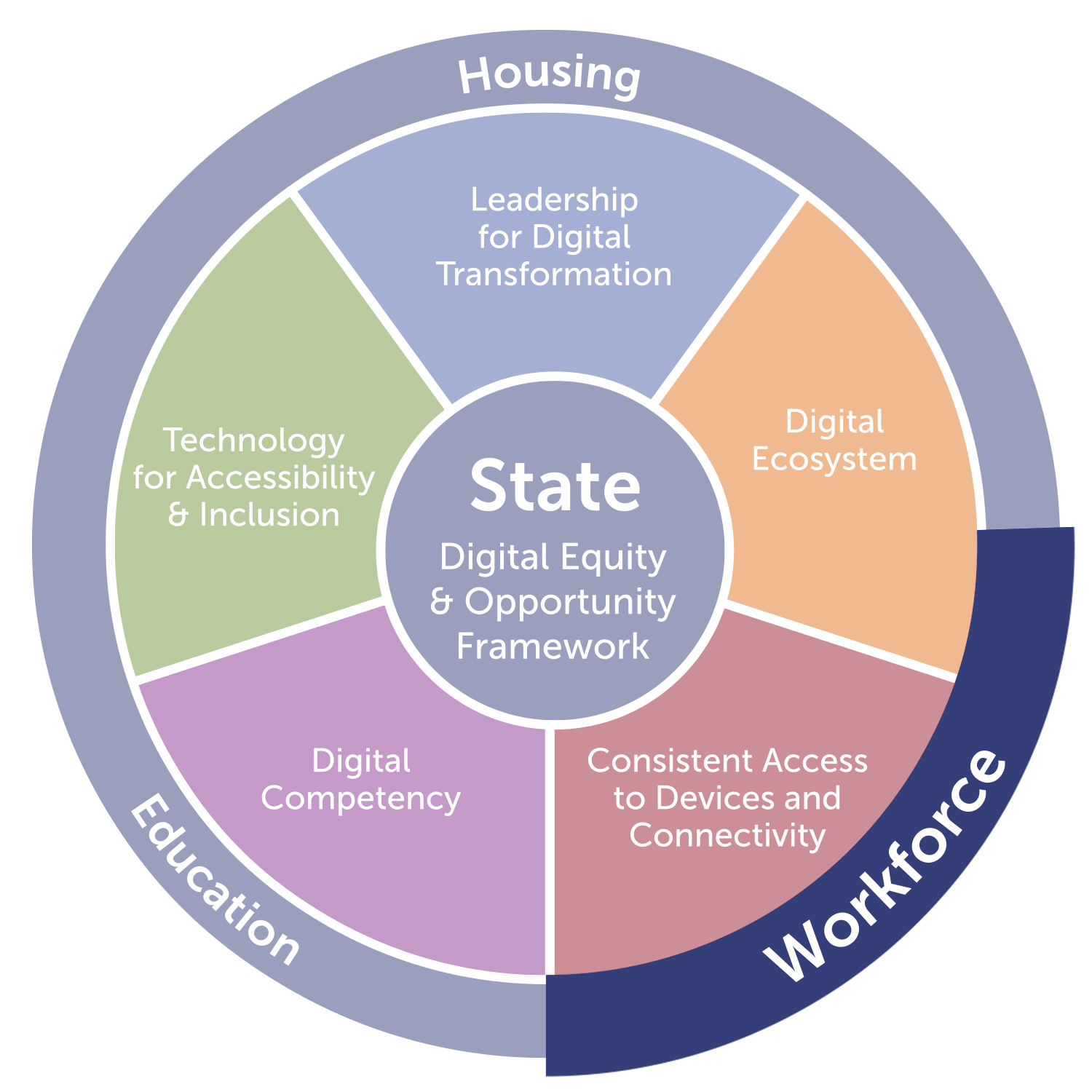Tennessee has a diverse population of approximately 6.9 million residents. According to Census.gov, Tennessee’s population is made up of 73.7% White (Non-Hispanic), 16.8% Black or African American, 5.6% Hispanic or Latino and 2.1% Asian. It has an urban population of 66 percent and rural population of 34 percent.
To ensure the long-term sustainability of their plans for closing the digital divides that hinder education, economic opportunities, and access to essential services, Tennessee’s Department of Economic and Community Development (TNECD) has taken steps to begin implementing the state’s Digital Opportunity Plan, which explicitly integrates their digital goals with education and workforce priorities.
Tennessee has taken the lead in creating a clear connection between the framework’s sectors of Education and Workforce in its Digital Opportunity Plan. To meet the state’s workforce development goal of becoming the No. 1 state in the Southeast for high-quality jobs, Tennessee is implementing strategies to:

A robust community of activists have been working on digital equity issues since Congress passed the Digital Equity Act in 2021 to identify more than 150 assets, including programs and non-profits that have the experience and ability to build digital access and skills.
The 2017 passage of the Tennessee Broadband Accessibility Act allowed the legislation to establish a partnership between TNECD and the Tennessee State Library and Archives for a grant program to libraries to provide digital skill-building and related services.

Tennessee dedicated $500 million of its federal coronavirus relief funds to broadband programs to advance broadband access and adoption. To do this effectively, the TNECD conducted a public needs assessment and identified the biggest areas of improvement to be digital skills and workforce development. They followed that by funding two opportunities:
Connected Communities Facilities Grant Program (CCF): Local governments and their nonprofit partners can apply for these funds to build new or rehabilitate existing community facilities to provide a variety of digital services, including broadband access, digital skills training, and workforce development, in one location.
Tennessee began with a thorough assessment of digital needs across the state, identifying areas with the greatest need for broadband infrastructure and digital literacy programs.
The state’s broadband leaders leveraged public-private partnerships by coordinating the Tennessee Digital Opportunity Summit in July 2024. This summit aimed to convene, connect, and amplify the voices and stories of digital opportunity practitioners and stakeholders from the Tennessee Department of Economic and Community Development (TNECD).
“Knowing where concentrations of nonprofit organizations already exist, we have tried to focus our efforts on connecting potential partners to each other in areas where there aren’t as many organizations on the ground,” said TNECD’s Codi Drake.
Additionally, TNECD continued to engage with community leaders and residents to ensure the initiatives were tailored to local needs and had community support.
TNECD’s vision is to be the No. 1 state in the Southeast for high-quality jobs, which drives its hyperfocus on digital opportunities for education and workforce development. A high-quality job is defined as one that pays a wage above a county’s median wage. The key performance indicator is that 85 percent of new job commitments are classified as high-quality jobs during the calendar year.
As of 2023, the state reported that 81.4 percent of all new job commitments were high-quality jobs, and in 2024, they are projected to reach 100 percent.

The program emphasized Inclusive Innovation by involving a diverse range of stakeholders in planning and execution. Continuous Improvement was achieved through feedback mechanisms that were established to adapt and improve the initiatives based on community input and emerging challenges.
Efforts were made to ensure the long-term Sustainability of the program through ongoing funding and partnerships, and by building local capacity for digital competency.